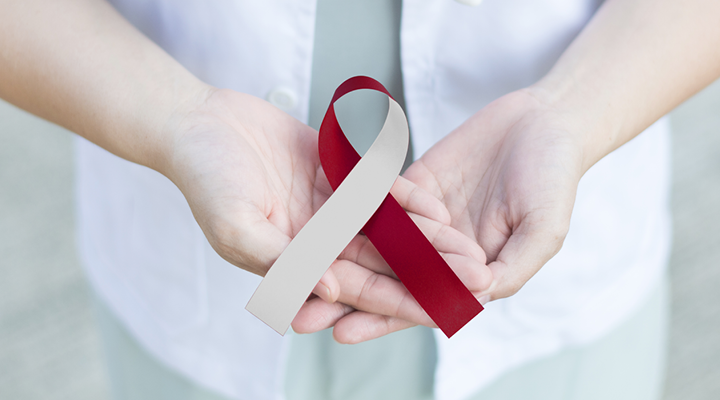
The Oral Cancer Foundation found that Americans don’t have a strong understanding of the signs and risks of oral cancer. If caught early, oral cancer can be treated. Early diagnosis reduces your risk of health complications and increases your rate of survival. And yet, statistics show that on average one person dies from oral cancer every hour of the day, 365 days a year. Over 50,000 new cases of oral and oropharyngeal cancers will be diagnosed in the US this year alone. Oral Cancer Awareness Month helps kickstart the conversation with our healthcare and dental practitioners about the signs and risks of oral cancer.
How Common is Oral Cancer?
Oral cancer is the cancer of the mouth and the pharynx. The most common oral cancer affects the squamous cells in your mouth. These are thin, flat cells that make up the outermost layer of our skin. Once these cells are compromised, the cancer cells multiply quickly, spreading to the lymph nodes of the throat. This is the point when oral cancer is most often diagnosed. According to the Oral Cancer Foundation:
- Nearly 132 people in the US will be newly diagnosed with oral cancer every day
- An estimated 54,000 new cases of oral and oropharyngeal cancers will be diagnosed in the US this year
- Of those new cases, 40% will not survive more than five years, and many who do survive continue to suffer from long-term issues
What Does Oral Cancer Look Like?
Conduct a self-exam once a month; feel and look inside your mouth, feel your jaw and neck, and watch for:
- White or red patches in the mouth
- Persistent sores, ulcers, or irritation in the mouth cavity
- Difficulty in chewing, swallowing, or moving the jaw or tongue
- Numbness in the tongue
- A sore throat that doesn’t go away
- A constant toothache or pain in the jaw
- An earache
If you come across anything suspicious, give your dentist a call right away. As with many diseases, an early diagnosis can make a huge difference for health outcomes. Even if you don’t see any of the warning signs listed above, be sure to visit your dentist twice a year for regular oral cancer screenings.
Find an in-network dentist near you.
What Causes Oral Cancer?
The main causes of oral cancer are due to lifestyle choices, age, poor nutrition, exposure to UV light, genetics, and other medical conditions.
Smoking, Tobacco, and Oral Cancer: Tobacco can contribute to oral cancer because it contains cancer-causing agents called carcinogens. Tar, arsenic, benzene, and cadmium are just a few carcinogens found in cigarettes. Vaping and chewing tobacco also present risks for developing oral cancer. About 75% of all people who get oral cancer use tobacco. Your age when you started using tobacco and the length of time you’ve used it will vastly increase your risk for oral cancer.
Ultraviolet Light Exposure and Oral Cancer: The Cancer Treatment Centers of America have found that, “Cancers of the lip are more common among people who work outdoors and visit tanning beds, and among those with prolonged exposure to sunlight.”
Drinking Alcohol and Oral Cancer: Do you know that excessive drinking of alcohol increases your risk of oral cancer? Dehydration, cirrhosis of the liver, and nutritional deficiencies are associated with drinking. These can also contribute to the development of oral cancer. If you drink alcohol and use tobacco products, you have an even greater risk of getting oral cancer.
Age, Nutrition, and Oral Cancer: The risk of developing cancer increases with age. Research tells us men are twice as likely as women to develop oral cancer, and consuming a lot of fresh vegetables, fruits, fish, and seafood can help protect us against oral cancer. Click here for a mouth-healthy salmon recipe.
Human Papilloma Viruses (HPV) and Oral Cancer: Human papillomaviruses (HPV) are a group of more than 100 related viruses, some of which are linked to the development of cancer, like oral and oropharyngeal cancers. In fact, 70% of oropharyngeal cancers may be attributed to HPV. This virus is mostly spread through skin-to-skin contact and oral-genital contact.
Poor Dental and Oral Hygiene and Oral Cancer: Untreated dental plaque and tooth decay can cause an infection in the mouth and gums. This can accelerate the growth of cancer.
For more information on ensuring you have a healthy mouth and smile, check out: Why Do You Need Dental Coverage? We’re Glad You Asked!

